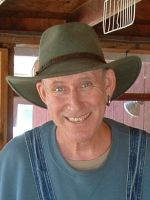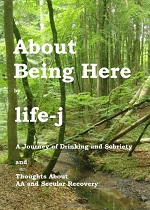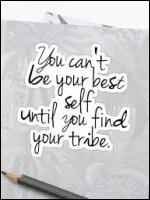This post was originally published on this site
Fifty Chosen Articles:
Number Forty-Two.
Originally posted in January 2020.
life-j wrote a total of eighteen articles posted on AA Agnostica over a period of six and half years.
By Roger C
Our dear friend life-j passed away on December 14, 2019. Below you will find a section with a bit of his biography and another section with a list of the articles he wrote that were posted on AA Agnostica.
But first, here is one of his articles:
Eight Principles of AA
The 12 steps have helped many people in AA. They seem to work particularly well for people that need, or want, to be told what to do and for people of a religious inclination. Others in AA find them less helpful and rely instead on the fellowship. Either way, there could have been 10, or 14, or 8 steps, and it would have been fine. The important thing is that we work earnestly at changing our lives.
I’m not going to go into whether or not Bill Wilson “accidentally” wound up with 12 steps, like he said, but there seems to be a certain obsession with that number. I have even seen “12 Promises”. But I would like to encourage a bit of thinking outside the groove and I think it may help loosen things up a bit to suggest that not everything has to come in twelve’s. To that end I have picked eight principles which guide almost everything in our program, and eight principles which make AA work:
Honesty, Open-mindedness, Willingness, Humility, Service, Living by the Golden Rule, Gratitude and Acceptance.
They are familiar to all and are, in a sense the basis for the steps. This is what we work toward, and the steps can be a good framework for working toward those principles.
But which are the principles that make AA work? If we know what works, what really at bottom makes AA work, then we can be more effective. Here are some of the most important:
-
An alcoholic will trust another alcoholic more than they will trust just about anyone else – spouses, parents, kids, friends, clergymen, therapists, teachers (never mind cops, judges and probation officers) and so as alcoholics we’re in a unique position to help each other in recovery.
-
Helping other alcoholics with their sobriety is one of the best ways to increase our chances of staying sober ourselves.
-
 Most of us need a tribe to belong to, and we greatly increase our chances of staying sober by going to meetings and by associating with other recovering alcoholics. If the tribe is defined in such a manner that we are made to feel that we belong, then most of us will indeed feel that we belong, and we are more likely to stay.
Most of us need a tribe to belong to, and we greatly increase our chances of staying sober by going to meetings and by associating with other recovering alcoholics. If the tribe is defined in such a manner that we are made to feel that we belong, then most of us will indeed feel that we belong, and we are more likely to stay. -
Don’t take that first drink, that’s the one that leads to a drunk. And there is no problem so bad that alcohol can’t make it worse.
-
For most of us it is not enough to merely stop drinking. First of all, we need to stop doing things that make us want to drink. But then we need to make some real changes in our lives. And it helps our recovery if we can contribute to making this a better world, especially for other alcoholics and their kin. Having a plan or a program of some sort can make it much easier to do.
-
We need to work toward peace and balance in our lives. Neither despair nor hedonistic elation. Neither grandiosity nor self-flagellation. But while it is important that we accept and allow ourselves to feel where we are, where we actually are right now, a life with plain, ordinary, peaceful happiness with time and space for contemplation would be a good goal.
-
Take it one day at a time, one hour at a time, even 5 minutes at a time if that’s all you can do. You can postpone that drink 5 minutes, or the argument, or whatever other stupid things you’re thinking about getting yourself into.
-
Doing the right thing helps keep me sober, because I will have no reason to feel bad about myself. At least I won’t be adding to the reasons for feeling bad that I showed up here with, and even those will slowly fade away if I keep working on really changing my life.
Let’s try to keep it that simple.
 Life (Leif) Jensen was born in Denmark on February 26, 1951. He lost any faith in religion which he may have had around the age of eight. He moved to Berkeley when he was 26, and settled in Oakland for much of his working life and his worst drinking years. He got sober there in 1988. In 2002, he moved to Laytonville, a small coastal mountain valley village in Northern California.
Life (Leif) Jensen was born in Denmark on February 26, 1951. He lost any faith in religion which he may have had around the age of eight. He moved to Berkeley when he was 26, and settled in Oakland for much of his working life and his worst drinking years. He got sober there in 1988. In 2002, he moved to Laytonville, a small coastal mountain valley village in Northern California.
He spent part of his life as a building contractor, part as a technical translator, and dabbled a bit in art work and writing. Retired, he lived with his sweetie, dogs, chickens and gardens on a small homestead, his beloved Dragonfly Farm. He was survived by his mother and his uncle in Denmark, his daughter in Italy, his son in Seattle, and his sweetheart and partner, Jane, at the Dragonfly Farm.
life-j was involved in service work of every kind all along, but decided that the most important work was to help atheists, agnostics and freethinkers feel safe and welcome in AA, and hopefully to do at least a small part in helping AA change with the times and to remain alive and well in the 21st century.
He struggled for a long time with stage 4 liver cancer. After liver surgery in 2014, he was cancer free, but it metastasized to his lungs. Still, he went to the secular AA conference (Widening the Gateway) in Olympia, WA, in January 2016. He attended the International Conferences of Secular AA (ICSAA) in Austin in 2016 and Toronto in 2018. He also attended the Secular Ontario AA Roundup (SOAAR) 2017 in Toronto and some eleven months ago (February 2019) was at the Symposium on AA History in Los Altos, California. As one of the speakers at the symposium, Joe C, reported: “he was laying down in the back for my presentation.”
Over the last year the cancer spread to other parts of his body. life-j passed away on December 14, 2019… peacefully and at home, as he had wished.
As part of his mission, life-j wrote a total of eighteen articles posted on AA Agnostica over a period of six and a half years and these are:
- Eight Principles of AA (shared on January 12, 2020)
- Humanly Possible – Stories of Secular Recovery (September 25, 2019)
- Dr Wilson and Mr Hide (August 11, 2019)
- Higher Powers (May 19, 2019)
- Moments of Clarity (October 21, 2018)
- Logical Fallacies of the Big Book (February 22, 2018)
- Standing on the Shoulders of Giants (November 23, 2017)
- Back to Basics and Other Religionists (July 6, 2017. Another chapter in the book, A History of Agnostics in AA.)
- The Daily Reflections (January 19, 2017)
- The Secular AA 2016 Austin Convention (November 17, 2016. This is also a chapter in the book, A History of Agnostics in AA.)
- Open-Minded (September 22, 2016. This is a reprint of the article published in the October 2016 issue of AA Grapevine.)
- Science may one day accomplish this… (May 12, 2016)
- The Jellinek Curve (August 22, 2015)
- Wounded Warriors (August 5, 2015)
- A Grapevine Book for Atheists and Agnostics (September 7, 2014)
- Yet Another Intergroup Fight (March 2, 2014)
- Our new chat room! (February 2, 2014. This chat room was closed after several months.)
- My Path in Alcoholics Anonymous (June 30, 2013. Also published, mildly edited, on January 12, 2016, as a chapter in the book, Do Tell!)
He also wrote fourteen articles for AA Beyond Belief.
 Most of the earlier articles are available in a book which he put together. The book can be read and/or downloaded as a PDF right here: My Collected Published AA Stories.
Most of the earlier articles are available in a book which he put together. The book can be read and/or downloaded as a PDF right here: My Collected Published AA Stories.
In July of 2019, life-j also published a book. An Introduction and Reviews can be accessed here: About Being Here. The book is available on Amazon.
For a PDF of this article, click here: life-j.
The post life-j first appeared on AA Agnostica.
